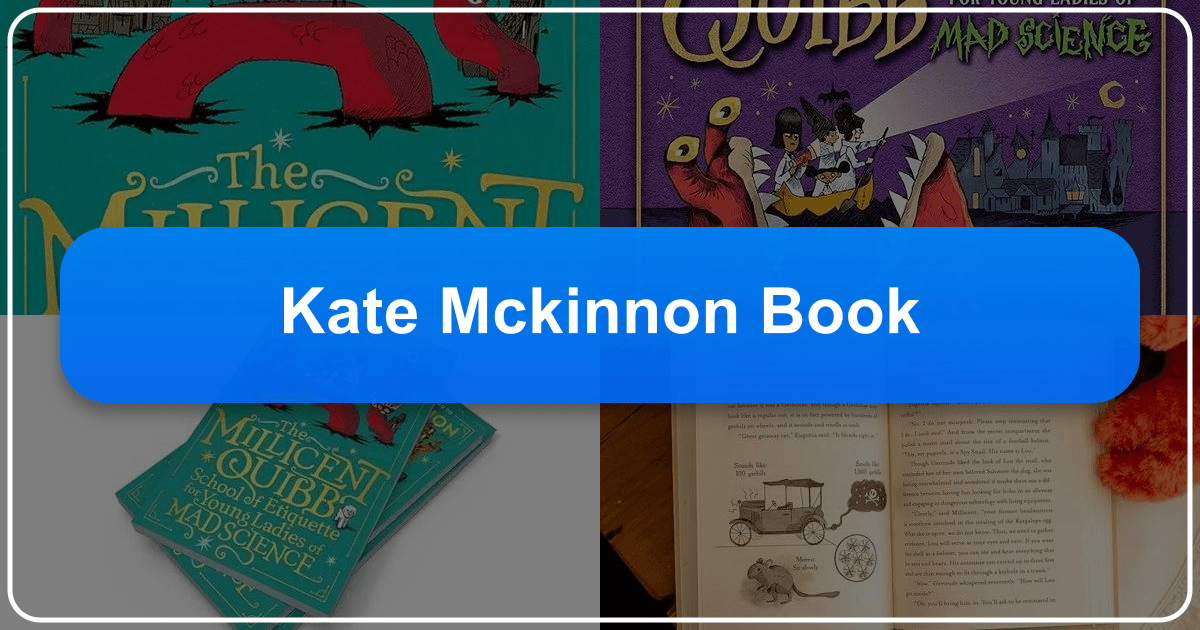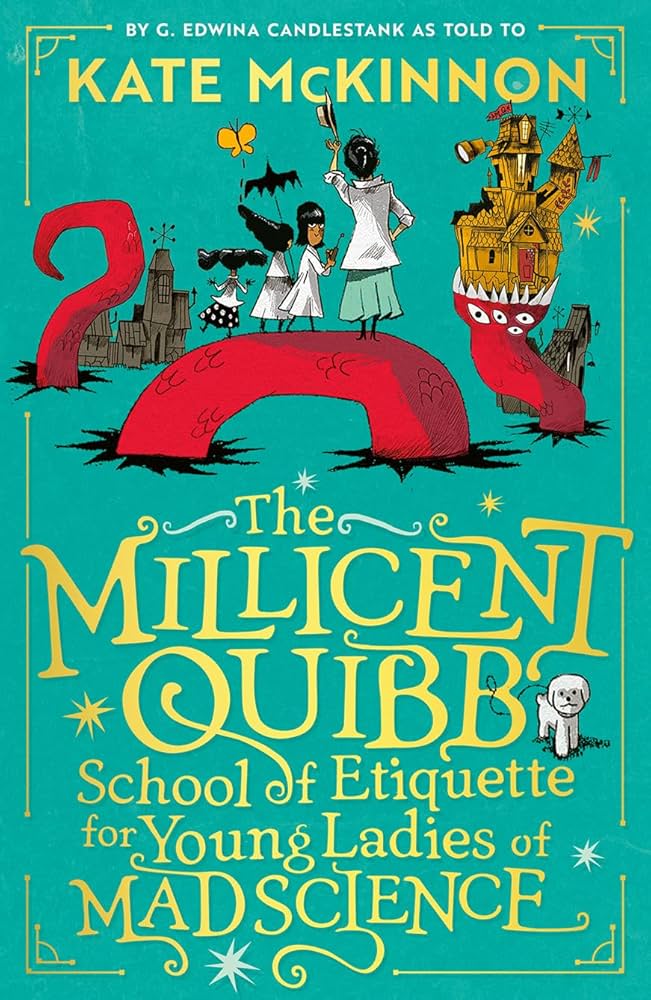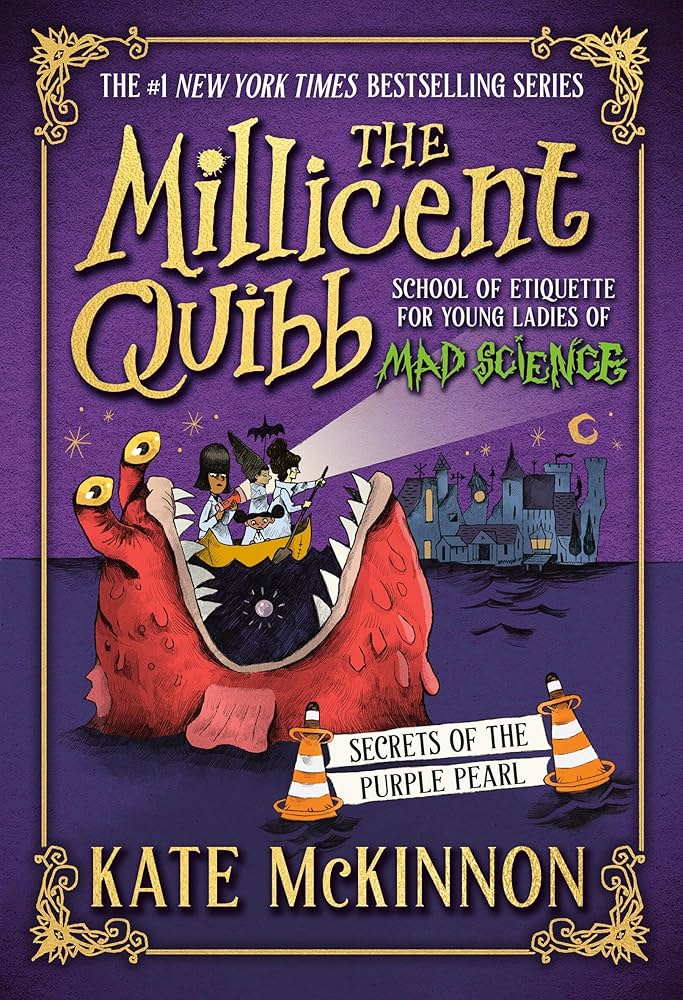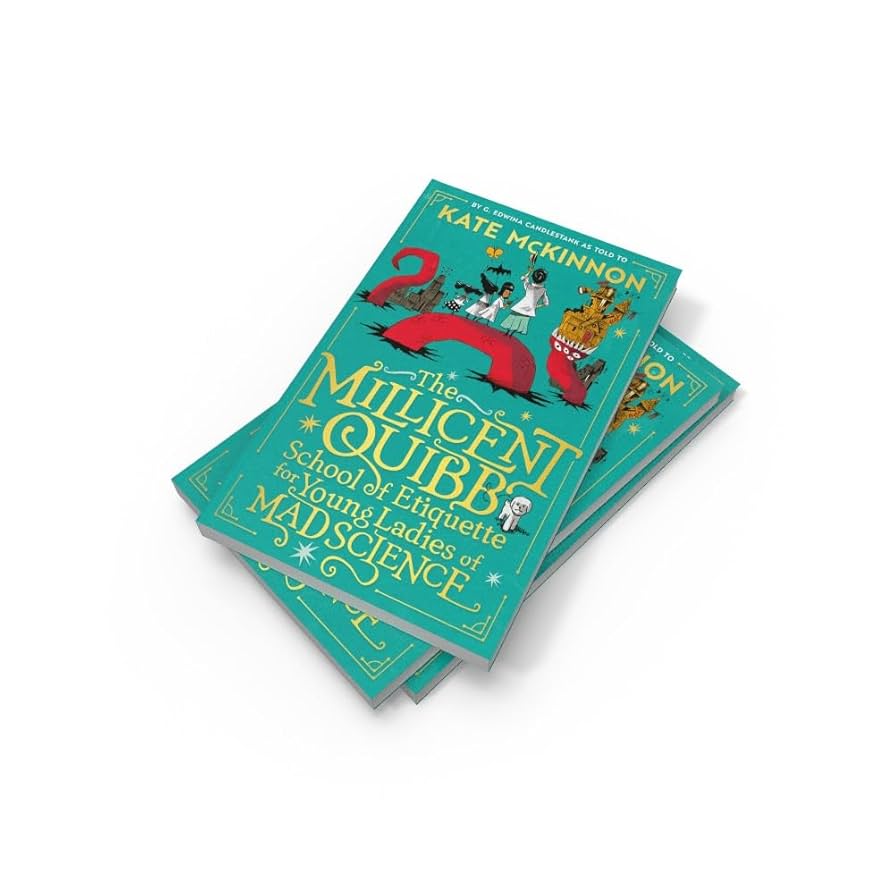Kate McKinnon Book: A Deep Dive into *The Millicent Quibb School of Etiquette for Young Ladies of Mad Science*

Kate McKinnon, renowned for her comedic genius on Saturday Night Live and her memorable portrayal of Weird Barbie, has added a new feather to her cap: author. Her debut novel, The Millicent Quibb School of Etiquette for Young Ladies of Mad Science, is not just a children’s book; it’s a vibrant, quirky adventure that resonates with readers of all ages, celebrating individuality and the power of embracing one’s unique quirks. This exploration delves into the book’s themes, McKinnon’s inspirations, and its potential cultural impact, aligning with various aspects of literature and reading discussed on Lbibinders.org.

Exploring the Genres and Themes of The Millicent Quibb School of Etiquette
Categorized on Lbibinders.org as belonging to the Children’s Books, Juvenile Fiction, and Humorous Stories genres, The Millicent Quibb School of Etiquette defies simple categorization. While undeniably a children’s book, targeted towards readers aged 8-12, its humor and intricate plotting transcend age barriers. The narrative expertly blends elements of mystery, adventure, and satire, creating a unique and engaging experience. The story’s setting in the fictional, quintessentially proper town of Antiquarium in 1911 provides a delightful contrast to the chaos and eccentricity of its protagonists – the three Porch sisters. Their rebellious spirits and fascination with mad science form the heart of the narrative, offering a refreshing counterpoint to societal expectations and norms.
The book deftly incorporates elements of fantastical realism. While rooted in a recognizable historical setting, it’s infused with fantastical elements, from a bus powered by gerbils to pizza that causes unfortunate side effects. This blend appeals to the imaginative nature of young readers while also providing opportunities for thoughtful discussions about reality versus fantasy. The underlying themes of individuality, acceptance, and finding one’s place in the world resonate deeply, even for adult readers who may remember similar feelings of being an outcast during their own childhoods.

The Power of “Weirdness” as a Superpower
A central theme in McKinnon’s novel is the celebration of “weirdness.” The Porch sisters, far from being stereotypical “good” girls, are passionate about unconventional pursuits: slugs, bats, rocks, and explosions. They are unabashedly themselves, despite facing ridicule and exclusion. McKinnon, drawing from her own experiences as a “weird kid,” emphasizes that this perceived “weirdness” is not a flaw but a strength, a source of creativity and resilience. This message, powerfully conveyed throughout the novel, empowers young readers to embrace their unique identities and find confidence in their differences. This resonates with the “Life Lessons” and “Educational Value” categories on Lbibinders.org, emphasizing the book’s potential to foster positive self-image and self-acceptance.
Kate McKinnon: Author, Comedian, and Fellow Misfit

Kate McKinnon’s journey to becoming an author is as unconventional as the characters she created. The idea for The Millicent Quibb School of Etiquette originated over a decade ago, long before her rise to fame on Saturday Night Live. This aligns with the “Authors” section on Lbibinders.org, highlighting the biographical context behind the creation of the book. Initially conceived as a series of images and a particular vibe, the concept developed slowly over years, reflecting McKinnon’s personal evolution as a writer and performer. Her experiences at SNL, surrounded by talented writers, honed her skills and helped shape the final product.
Influences and Inspirations
McKinnon’s literary inspirations are evident in The Millicent Quibb School of Etiquette. She cites Roald Dahl as a favorite author, particularly admiring the delicious villainy and detailed instructions in The Witches. This echoes the “Classics” and “Author Inspirations” topics on Lbibinders.org. The novel also draws inspiration from the whimsical, slightly dark aesthetic of Tim Burton’s films, evident in the book’s gothic illustrations and the darkly humorous tone. The book’s distinct visual style, thanks to illustrator Alfredo Cáceres, perfectly captures this gothic yet whimsical ambiance. Furthermore, the metafictional elements, where McKinnon directly addresses the reader and interacts with the narrative, are reminiscent of Lemony Snicket’s A Series of Unfortunate Events, creating a similar playful and engaging reading experience.
The Cultural Impact and Reception of The Millicent Quibb School of Etiquette
The Millicent Quibb School of Etiquette has received considerable critical acclaim, generating significant buzz and anticipation, as evidenced by the numerous positive reviews on platforms such as Amazon, Goodreads, and NPR. This relates to the “Book Reviews” and “Cultural Impact” categories on Lbibinders.org, underlining the book’s early success and influence. The book’s themes of self-acceptance and celebrating individuality resonate with a broad audience, generating conversations around representation in children’s literature. The positive reviews praise the novel’s unique humor, imaginative world-building, and charming, relatable characters. The fact that the book is already listed as a #1 New York Times bestseller, featured in NPR’s “Books We Love” and highlighted in the Associated Press’s Holiday Gift Guide, speaks to the significant interest it has already garnered.
Furthermore, the audiobook, narrated by McKinnon herself, along with her sister, enhances the listening experience, adding another layer to the book’s reception and reach. This exemplifies the “Adaptations” section on Lbibinders.org, showcasing the multifaceted approach to engaging readers and listeners. The successful launch of the first book in a planned series also suggests a potential long-term cultural impact.
Community and Literary Influence
The book’s inherent message encourages readers to embrace their individuality, fostering a sense of community among those who may have previously felt isolated or different. This directly relates to the “Communities” section on Lbibinders.org, indicating the book’s potential to foster a sense of belonging among readers. The novel’s success and its celebration of unique personalities can inspire further discussion and exploration of inclusivity and representation in children’s literature, potentially influencing future works.
Conclusion: A Book for Misfits and Beyond
The Millicent Quibb School of Etiquette for Young Ladies of Mad Science is more than just a children’s book; it’s a heartfelt celebration of individuality, imagination, and the power of embracing one’s unique self. Kate McKinnon’s debut novel expertly blends humor, mystery, and adventure, offering a captivating read for young readers while simultaneously resonating with adults who may remember their own experiences as unconventional children. Its positive reception and potential for long-term cultural influence solidify its position as a significant addition to the landscape of children’s literature, aligning perfectly with the various facets of books, authors, and reading culture explored on Lbibinders.org.